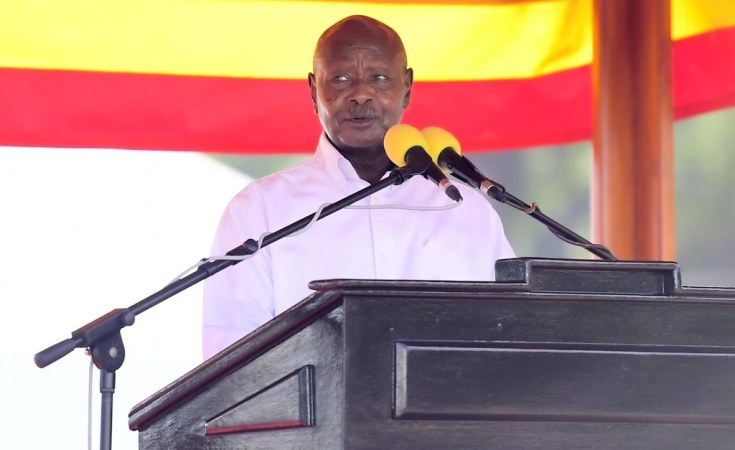President Museveni has retaliated his call to have suspects accused of corruption and capital offences denied bail.
Speaking during the annual coordination meeting between the Office of the DPP and Criminal Investigations Directorate at Kibuli, the president suggested that rather than give bail, prosecution should expedite the trial to ensure justice is served.
"If the case is ready for trial, I think it( granting bail) is really a big mistake. I can understand if the case if not yet ready after six months, you can think of bail but if the case if ready for trial why do you not try and finish it, especially if it is a case of murder, corruption, rape or treason," Museveni said.
"Even if I was the accused, I would say, try me quickly and I prove my innocence. Why do you want to prolong it? The Attorney General should see how to help us on this issue of bail."
The issue of denying bail to capital offenders has been sticky for many years, especially after a suggestion by President Museveni that it should never be granted to them.
The president in 2021 started the movement against denying bail to capital offenders, asking courts to be alive to the reality.
The president also expressed similar sentiments about murder suspects being granted police bond after arrest.
According to President Museveni, it is unfair to see a person accused of murder roam freely in society after being released on police bond.
Several legal brains have in the past differed from the president's views on bail .
What the law says
The right to bail is a fundamental right guaranteed by Article 23 (6) of the 1995 Constitution of the Republic of Uganda.
The constitution says that where a person is arrested in respect of a criminal offence, they are entitled to apply to the court to be released on bail and the court may grant that person bail on such conditions as the court considers reasonable.
It also says that in the case of an offence which is triable by the High Court as well as by a subordinate court, the person shall be released on bail on such conditions as the court considers reasonable, if that person has been remanded in custody in respect of the offence before trial for 120 days .
The Constitution adds that in the case of an offence triable only by the High Court the person shall be released on bail on such conditions as the Court considers reasonable, if the person has been remanded in custody for 360 days before the case is committed to the High Court.
The basis of this provision is found in Article 28 of the same Constitution which states that an accused person is to be presumed innocent until he/she is proved or he/she pleads guilty.
Museveni drags feet
The president on Thursday said whereas an accused has a right to apply for bail, granting it to them is "not a right."
"The Chief Justice through his instructions recently clarified that applying for bail is a right but granting it is not a right but rather a discretion of the judge, taking into account circumstances. However, the judges are just giving bail but it is not a right," Museveni said.
"The accused has rights but also the victims have rights. You can't say, the rights of the accused are the only rights in the constitution. Be careful with Africans because they still believe in the law of Moses that says an eye for an eye and a tooth for a tooth. This is their justice. If you want peace with Africans, please , we want full accountability."
President Museveni's comments on denying bails to capital offenders and those on corruption charges comes a few weeks after the Anti Corruption court granted bail to several MPs accused of corruption.


